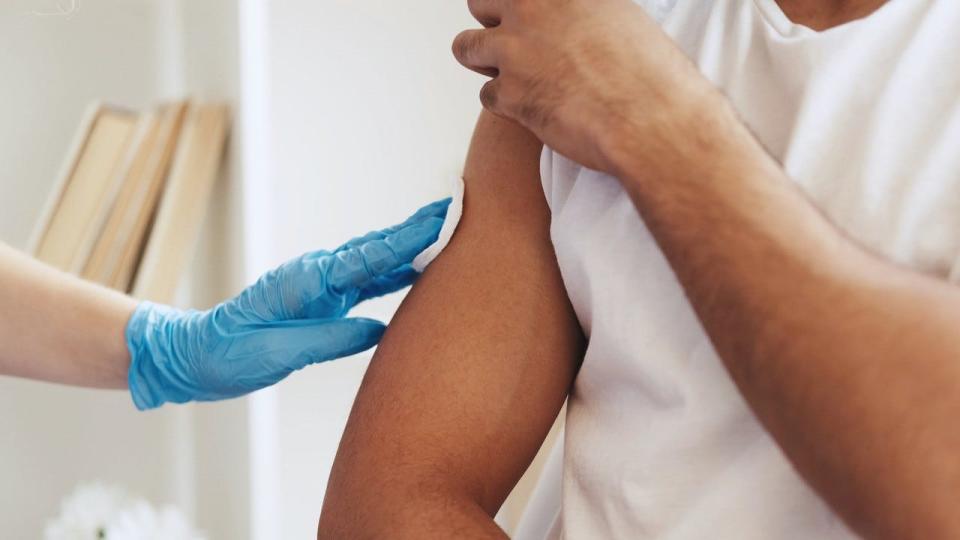RSV cases are on the rise. Here's what you should know about the vaccine
Cases of respiratory syncytial virus, known as RSV, are rising in the parts of the southeastern U.S., and expected to spread to the rest of the country over the next couple of months, according to the Centers for Disease Control and Prevention.
The public health agency this week issued an advisory about the increases, encouraging healthcare professionals to prepare to implement new vaccines, in anticipation of the onset of the RSV season, typically in the fall and winter.

RSV is a common respiratory virus that usually causes mild, cold-like symptoms. Most people recover in a week or two, but RSV can be serious. Infants and older adults are more likely to develop severe RSV infections, including bronchiolitis and pneumonia and need hospitalization.
How RSV is spread
Transmission occurs primarily via respiratory droplets when a person coughs or sneezes, or through direct contact with a contaminated surface.
Symptoms
People infected with RSV usually show symptoms within four to six days after getting infected. Symptoms of RSV infection usually include:
Runny nose
Decrease in appetite
Coughing
Sneezing
Fever
Wheezing
These symptoms usually appear in stages and not all at once. In infants with RSV, the only symptoms may be irritability, decreased activity and breathing difficulties.
The toll
The CDC estimates that every year RSV causes between 58,000 to 80,000 hospitalizations and 100 to 300 deaths in children younger than age 5. Adults age 65 and older have seen between 60,000 to 160,000 hospitalizations and 6,000 to 10,000 deaths annually.
Prevention
New vaccines are available to protect older adults from severe RSV; and monoclonal antibody products — including a new, long-acting product, nirsevimab (BeyfortusTM, Sanofi and AstraZeneca) — are available to protect infants and young children from severe RSV.
Adults age 60 years and older, can be protected from severe RSV with a single dose of an FDA-approved RSV vaccine, either RSVPreF3 (Arexvy, GSK) or RSVpreF (AbrysvoTM, Pfizer). Each vaccine was more than 80% effective in preventing RSV-associated lower respiratory tract disease during the first RSV season after vaccination, the CDC said.
In August, the FDA approved the RSVpreF vaccine for use in pregnant people during weeks 32 through 36 of gestation for the prevention of lower respiratory tract disease in infants.
When infants should receive the RSV vaccine
The CDC recommends all children younger than eight months receive nirsevimab, which was approved by the FDA earlier this year, to protect them in their first RSV season. It’s expected to be available by early October.
When adults age 60 and older should get the RSV vaccine
For the 2023-24 RSV season, typically in the winter, people age 60 or older may get an RSV vaccine as soon as it is available; before the number of cases of RSV starts to increase. But the CDC recommends the decision on whether to get the vaccine be made after talking with a doctor.
"This recommendation differs from routine age-based and risk-based vaccine recommendations for which the default decision is to vaccinate all persons in a specified age group or risk group," the CDC website states.
Possible side effects of the RSV vaccine
Usually mild side effects such as pain, redness, and swelling where the shot is given, fatigue, fever, headache, nausea, diarrhea, and muscle or joint pain are possible after RSV vaccination.
Some should avoid getting RSV vaccination
Anyone who has ever had a severe allergic reaction to any component of either Arexvy or Abrysvo should not get the vaccination, according to the CDC. Information about Arexvy can be found in the manufacturer’s package insert. Information about Abrysvo can be found in the manufacturer’s package insert.
This article originally appeared on Indianapolis Star: RSV cases are on the rise. What you should know about the RSV vaccine

